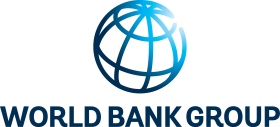The countries comprising the Southern
African Customs Union (SACU) are currently not very
integrated into global value chains (GVCs), potentially
missing out on important development opportunities.
Accordingly, we explore high level options for promoting
their integration. Given East Asia’s spectacular success
with integrating into GVCs, we first assess the probability
that SACU can copy their flying geese pattern. That was
initiated by Japanese multinational corporations (MNCs)
investing in successive East Asian countries thereby
becoming the lead geese, to be joined subsequently by MNCs
from other countries. We argue that the conditions for
pursuing a flying geese approach are difficult to replicate
in SACU. Therefore, we proffer and explore the proposition
that South Africa could serve as the gateway for harnessing
MNC geese flying from third countries into the SACU region,
in time propelling regional development through knowledge
and investment spillovers, and serving as a conduit into
GVCs. However, there may be substantial obstacles to
deepening this integration potential. Other African gateways
are emerging as alternatives to South Africa. And some SACU
governments would prefer to build regional value chains
(RVCs) rather than prioritize GVC integration. We argue that
RVCs are complements to GVCs. SACU countries, excluding
South Africa, may not attract many world leading MNCs since
their markets are small, but could attract smaller regional
players from South Africa or elsewhere. Thus building RVCs
in the short run could assist with integration into GVCs in
the longer run. Overall, this requires harnessing South
African and MNC geese to the South African gateway, in a
mutually complementary strategy.
Authors and Publishers
Draper, Peter
Freytag, Andreas
Scholvin, Sören
Tran, Luong Thanh
World Bank Group (WB)
The World Bank is a vital source of financial and technical assistance to developing countries around the world. We are not a bank in the ordinary sense but a unique partnership to reduce poverty and support development.
Data provider
World Bank Group (WB)
The World Bank is a vital source of financial and technical assistance to developing countries around the world. We are not a bank in the ordinary sense but a unique partnership to reduce poverty and support development.


